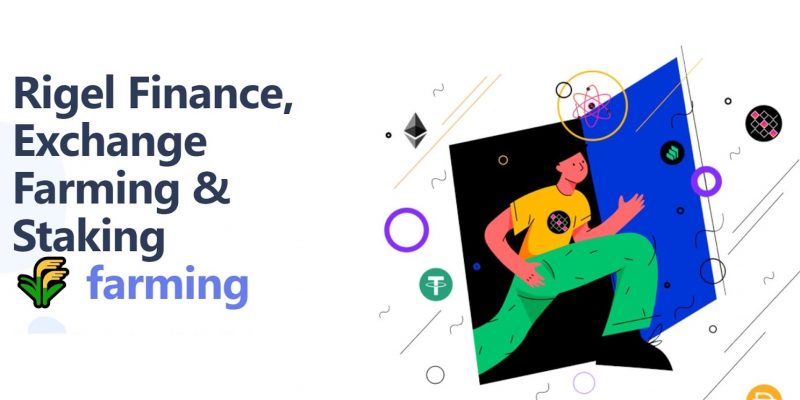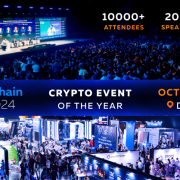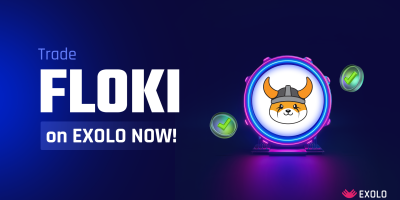Rigel Finance seeks to enhance the way you trade via its unique yield farming AMM protocols. This Automated Market-Making (AMM) combines a Decentralized Exchange (DEX) with some of the world’s top DeFi features. Specifically, you can farm, stake, and trade with ease using this platform.
What is an AMM?
The first thing to understand is that Rigel Finance is an AMM. AMMs differ from traditional exchanges in a couple of important ways. When you trade using a conventional crypto exchange, you’re exchanging your tokens with another trader directly. In the case of centralized broker exchanges, you’re purchasing your crypto from the platform itself.
When you trade on an AMM, you are actually interacting with a smart contract that acts as a liquidity pool. This smart contract then “makes” the market for you. AMMs are growing in popularity because they provide a lot of benefits over their traditional counterparts. Primarily, they allow digital assets to be traded without permission and automatically.
Yield Farming
Rigel Finance leverages its powerful AMM engine and combines it with a yield farming protocol to provide users with more opportunities to earn. Yield farming is an investment strategy that involves locking your cryptocurrency into a liquidity pool. It’s very similar to staking.
The main difference between staking and yield farming is that yield farming usually has no required lockup period, whereas staking protocols can require 30-days or longer. Also, staking protocols usually have some early withdrawal fee or penalty if you need to access your crypto before the lockup ends. Consequently, yield farming has gained a lot of attention since it entered the market last year.
Rigel Yield Farming
In the Rigel ecosystem, you earn RIGEL tokens by farming RigelSwap V2 RLP. Impressively, the network currently supports 18 pairs of yield farming pools to suit your investment needs. The network rewards you with a respectable 15% of RIGEL/block in the pair RIGEL-ETH RLP and 5% of RIGEL/block for the other 17 pairs. Best of all, the yield farming protocol is deflationary.
Deflationary Yield Farming is the Future
One of the biggest complaints of yield farmers in the market currently is inflation. In most DeFi scenarios, the rewards tokens are issued whenever new liquidity is added to the pool. Sadly, this approach leaves investors suffering as time progresses because the token issuance rate begins to out weight the demand.
To combat these inflationary concerns, Rigel Finance introduces a proprietary deflationary mechanism. This system helps developers gain more control over their project’s token value. Every day, the network automatically trades all the LP (liquidity pool) tokens for RIGEL tokens. These tokens then get redistributed proportionally between all the xRIGEL holders in the pool.
In addition to the LP token conversion, the network also hosts bi-weekly burning events. The amount of tokens burned is based on a variety of factors, including the number of listings. Lastly, the network will conduct yearly burns. The schedule for these burnings starts the second year with 50% of all listing fees burned. From there, the annual burns will decrease by 50%.
Powerful Tokenomics Strategy
Uniquely, there are only 30.000 RIGEL scheduled for release, with the last coin issued sometime in December 2022. This low token supply means that the demand for RIGEL will see continued growth as the project matures. The value of the token has already risen since the private sale sold out. There are currently 7600 RIGEL in circulation.
A Multi-Token Approach to Combat Inflation
Rigel Finance was built to ensure that future yield farmers and stakers would enjoy healthy ROIs. The network utilizes a multi-token approach to accomplish this task. The network’s primary governance token is RIGEL.
RIGEL is what you hold to gain voting rights on vital upgrades to the network, such as adding a new farming pool. You also have a staking token called xRigel and a yield farming token called RigelSwap V2 RLP. Since all of these tokens are deflationary in nature, each is expected to increase in demand in the coming weeks.
Progress of Development
Rigel’s network is already live. The network intends to list its token in the coming weeks on seven top exchanges. Each listing will add liquidity to the platform and increase the demand for this scarce token. RIGEL is already available on Bithumb Global, Bilaxy, Rigel Swap, Uniswap, and 0x Protocol.
Notably, the network has a well-thought marketing and launch strategy dubbed the “Take Me To Rigel” campaign. This campaign includes multiple token listings, the full launch of the platform, early-bird investor bonuses, and the start of a wide-spread marketing push.
Rigel Wallet
Another feature to look out for is the Rigel Wallet. This DeFi wallet is available as a free download on all Android devices. The wallet has high interoperability due to its WalletConnect integration. You can save any ERC-20 token with ease and check the balances and other vital data at a glance. Best of all, 50% of all the network’s fees go to the deflationary protocol.
Stake and Earn
You can also stake your tokens on Rigel Finance. Staking is a core feature on most DeFi platforms nowadays. Staking is considered a better alternative to trading by many investors because it requires far less work. When you trade cryptocurrencies, you must research, analyze, and actively monitor and manage your investments.
When you stake your cryptocurrencies on Rigel, you simply lock your crypto into a smart contract. The more tokens you stake, and the longer you keep your holdings locked, the higher rewards you will earn. Best of all, these rewards are guaranteed, versus trading, where market movements are impossible to predict with 100% accuracy.
Unlimited Growth Potential
Rigel Finance’s tokenomics make it stand out from other projects in DeFi currently. The developers behind this platform found a nice balance between features and usability to attract investor interest. It will be interesting to see the effects of such a low token issuance.












Comments